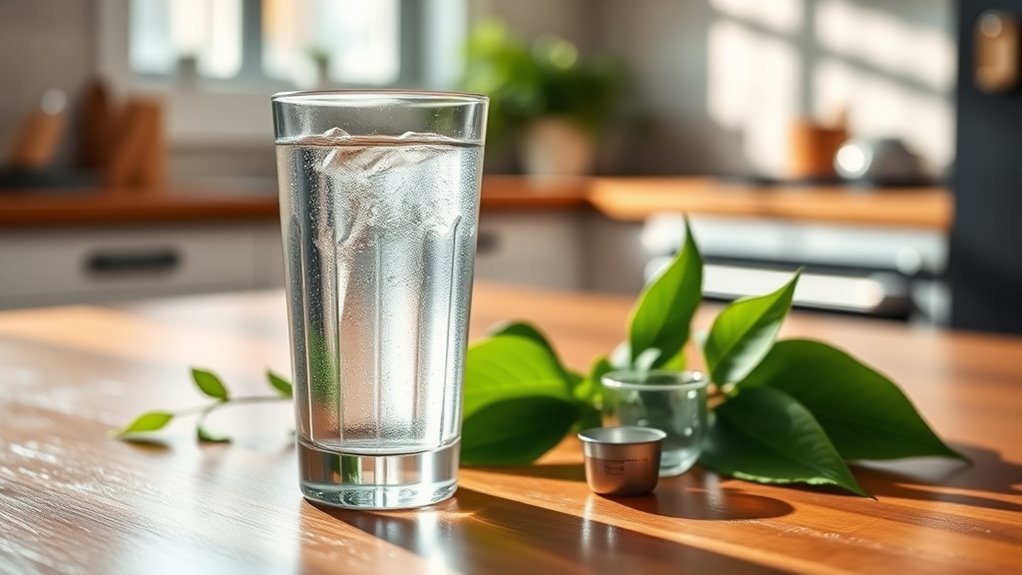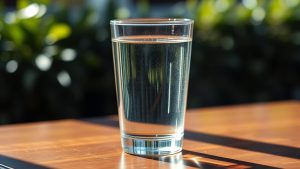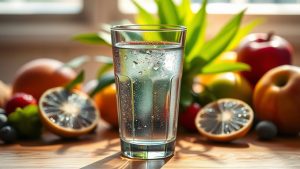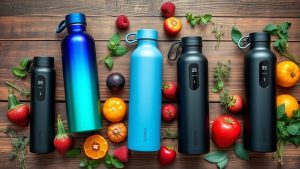
Eight ounces of water represents about 10% of the recommended daily intake of 64 ounces. While it's a small amount, it plays a crucial role in your overall hydration strategy. It's important to remember that individual hydration needs vary based on factors like activity level, climate, and age. Keeping track of your hydration is essential, as you can be affected by mild dehydration. Discover how to better manage your hydration needs for peak health and well-being.
While the common guideline of drinking eight glasses of water daily has been widely accepted, it's important to recognize that hydration needs vary greatly among individuals. The recommendation stems from a 1945 guideline by the U.S. Food and Nutrition Board, which suggested an intake of around 64 ounces daily. However, this figure included water derived from food, which contributes approximately 20% of total hydration. This means that the actual amount of plain water you might need could be less than eight glasses, depending on your diet and lifestyle.
Your hydration needs can fluctuate considerably based on various factors like physical activity, climate, and health status. If you engage in intense exercise, you'll likely require more water to compensate for fluid loss through sweat. Similarly, if you live in a hot and humid environment, your body will demand additional fluids to maintain ideal hydration levels. Sweat rate can be calculated by weighing before and after workouts, providing a personalized approach to understanding your hydration needs.
Hydration needs vary significantly due to factors like activity level, climate, and health status. Stay mindful of your body's demands.
Pregnant and breastfeeding women also need more fluids than usual, as their bodies are working harder to support both their health and that of their child. Certain health conditions may require you to adjust your hydration intake, and it's always wise to seek medical advice if you're unsure.
It's also vital to reflect on age as a factor. Older adults often have a diminished thirst response, making them more susceptible to dehydration. As you age, changes in body composition can lead to a decrease in total body water, further complicating hydration needs.
Medications can also play a role; for instance, diuretics can increase fluid loss, necessitating a higher water intake.
Thirst serves as a reliable cue for hydration for most people, but it can sometimes indicate a state of mild dehydration. To verify you're meeting your hydration needs, it's a good practice to drink water regularly throughout the day, rather than waiting until you're thirsty. This proactive approach can help prevent cognitive impairments like memory and concentration issues, which can arise from even mild dehydration.
Physical symptoms such as headaches and fatigue are also common indicators that your body needs more fluids.
Beyond plain water, reflect on the contributions of food and other beverages to your daily hydration. Water-rich foods, like fruits and vegetables, can considerably impact your overall fluid intake. Liquid-based foods like soups and broths are also excellent hydration sources.
Additionally, beverages such as milk and juice contribute to your fluid needs, while moderate caffeine consumption doesn't lead to dehydration when balanced properly.
Conclusion
Incorporating 8 ounces of water into your daily routine is a simple yet effective way to boost your hydration levels. Curiously, studies show that even mild dehydration can impair cognitive function by up to 10%. By starting with this small amount, you can encourage better hydration habits throughout the day. Remember, your body is about 60% water, and staying properly hydrated is essential for ideal health and performance. So, make those 8 ounces count!



